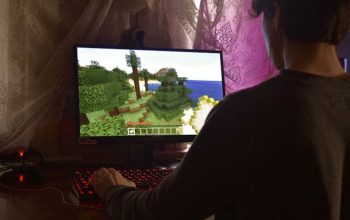In an age dominated by online multiplayer titles and constant internet connectivity, it’s easy to forget the magic of offline gaming while indulging in the allure offered with a safespin casino bonuses Australia. Yet, stepping away from the digital noise can be incredibly beneficial for fostering a different kind of engagement—one that encourages problem-solving, imaginative thinking, and sheer creative expression. Many offline games, by design, not only entertain but also serve as powerful catalysts for creativity, challenging players to build, strategise, or think outside the box.
Facing a power outage, or simply looking to disconnect and stimulate your mind, these five excellent offline games offer rich opportunities for unleashing your inner innovator.
- Minecraft
Minecraft, the block-building phenomenon from Mojang, is a global sensation for a reason: it’s a nearly limitless sandbox that encourages players to build, explore, and create anything they can imagine.
In its offline “Creative Mode,” players have access to an infinite supply of blocks and resources, allowing them to construct elaborate structures, intricate mechanisms, entire cities, or fantastical landscapes without the constraints of survival. The freedom to design and build in a 3D environment, from pixel art to functional contraptions (with Redstone), provides an unparalleled outlet for architectural, engineering, and artistic creativity. It’s less a game and more a digital LEGO set on steroids.
- Cities: Skylines
For those with a penchant for urban design and logistical puzzles, Cities: Skylines by Colossal Order offers a highly detailed and engaging city-building simulation.
Players are tasked with designing, building, and managing every aspect of a thriving metropolis. This involves creative problem-solving in city layout, zoning, infrastructure (including roads, power, and water), public services, and balancing budgets. The game encourages innovative solutions to traffic flow, citizen happiness, and economic growth, allowing players to realise their vision of an ideal (or chaotically fun) city. Its deep simulation mechanics mean that every decision has consequences, pushing players to think strategically and creatively.
- The Witness
The Witness, a puzzle adventure game by Jonathan Blow, drops players onto a mysterious island filled with hundreds of interconnected puzzles, primarily based on mazes and perception.
This game doesn’t hold your hand. It teaches you its rules through subtle environmental clues and experimentation, forcing you to observe, deduce, and think laterally. Solving one puzzle often reveals a new layer of understanding for others, creating a cumulative learning experience that fundamentally shifts how you approach problems. It encourages creative thinking by requiring players to discover abstract rules and patterns rather than just following explicit instructions.
- Stardew Valley
Stardew Valley, the charming farming and life simulation RPG by Eric Barone (ConcernedApe), offers a serene yet deeply engaging experience of building a life from the ground up.
Players inherit a rundown farm and are free to cultivate crops, raise livestock, explore mines, fish, build relationships, and customise their farm and home. The creativity comes in designing your farm layout, optimising resource production, decorating your house, and even crafting strategies for community development. It’s a game that rewards personal expression and thoughtful planning, allowing players to create their ideal rural retreat and pursue various creative avenues within the game world.
- Terraria
Often described as “2D Minecraft,” Terraria by Re-Logic offers a unique blend of sandbox building, exploration, combat, and adventure in a vast pixelated world.
Players can mine for resources, craft thousands of different items (weapons, armour, tools, furniture), and build elaborate structures from simple houses to sprawling castles. The game encourages creative problem-solving both in its combat encounters (devising arenas and traps) and in its building aspects (designing functional and aesthetically pleasing bases). Its progression system, which unlocks new items and challenges, constantly provides new materials and incentives for creative construction and exploration.







